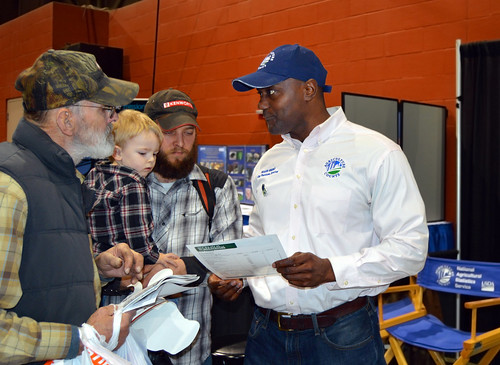
It goes without saying a successful statistician must have strong math, analytical and technical skills. You might be surprised to learn, then, just how much of my time is dedicated to listening to and talking with people. To be sure, I still use math and science daily. Two decades into my career, however, it’s those intentional, important interactions with farmers who answer my agency’s requests for information, as well with those who use my agency’s data, researchers, analysts and farmers themselves that keep me busiest.
Why? Because NASS is the “go to” source for official government statistics on U.S. agricultural production, economics, land, water, energy, environmental management and farmer demographics. Part of my job includes making sure farmers want to respond to our surveys and censuses and that researchers choose to use our data because it is the most accurate and unbiased.
I’m the grandson of a cattle rancher so intrepid that even after my then seventy-something year-old grandfather was kicked by a horse, he continued to ranch. I like to think I’ve inherited that tenacious nature and apply it to everything I do, even building awareness of the relevance of agricultural statistics. I do this by engaging with people at expos, trade shows, and one-on-one meetings. Somewhere between admiring the butter sculpture, checking out the latest equipment, vehicles, livestock, research, technology and trends, people stop in the NASS booth and we chat.
I have found that farmers respond to my agency’s requests for information when they understand how official government statistics help them manage risks, conserve natural resources and promote a healthy agricultural production and marketing system in which they benefit. I spend a good bit of time meeting with farmers at farm shows, agricultural conferences and even at their operations. I also serve as presenter, moderator and panelist at agricultural symposiums and meet with stakeholders at multidisciplinary meetings. I do this to better understand what is happening in American agriculture, what matters to people who rely on agriculture and how my agency can provide the data needed to help make sure American agriculture remains healthy and prosperous. Each time I meet with a new producer; a new data user, I feel the satisfaction that comes from working at a job I sincerely enjoy.
King Whetstone is the regional director of USDA's National Agricultural Statistics Service Northeastern Regional Field Office located in Harrisburg, Pa.
